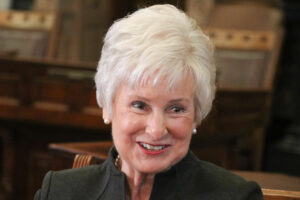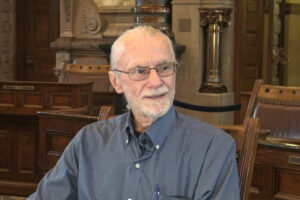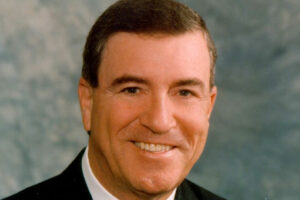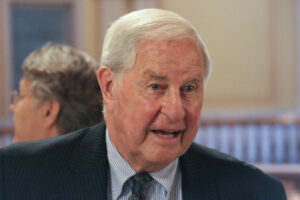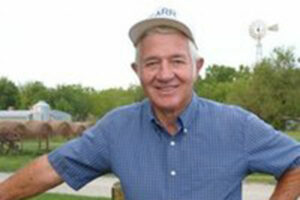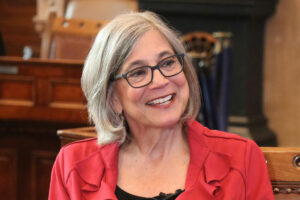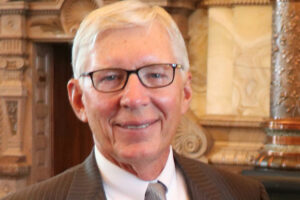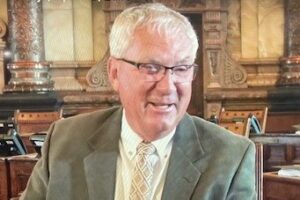Interview of Alicia Salisbury, October 23, 2020
Interviewed by Patty Clark
Former Senator Alicia Salisbury grew up in a political family--both father and grandfather served in the legislature--so her sixteen years of service as a Kansas Senator continued the family tradition. She also was a serious legislator who believed in community service as witnessed by the numerous boards and committees on which she served, both volunteer and elected. Salisbury's driving interests were improving the economy of Kansas and bringing growth in wealth to her community and state. Salisbury's 2020 oral history interview chronicles her work ethic. With her children no longer at home, she had the Show Moretime and the interest to dive into a wide assortment of issues, from workforce development, to interstate banking, to telecommunication reform, to a blue ribbon panel on workers compensation. Salisbury worked long hours and focused on constituent services. She boldly asked for the committees that interested her and championed changes where necessary. Salisbury succeeded in changing the Labor and Industry Committee into the Commerce Committee to handle everything from economic development strategies to workers compensation. She tackled tough issues with a sense of humor and the skills of collaboration learned as a volunteer leader. This interview describes her determination, her commitment, and her legacy to the state of Kansas as Vice President of the Senate. Show Less

